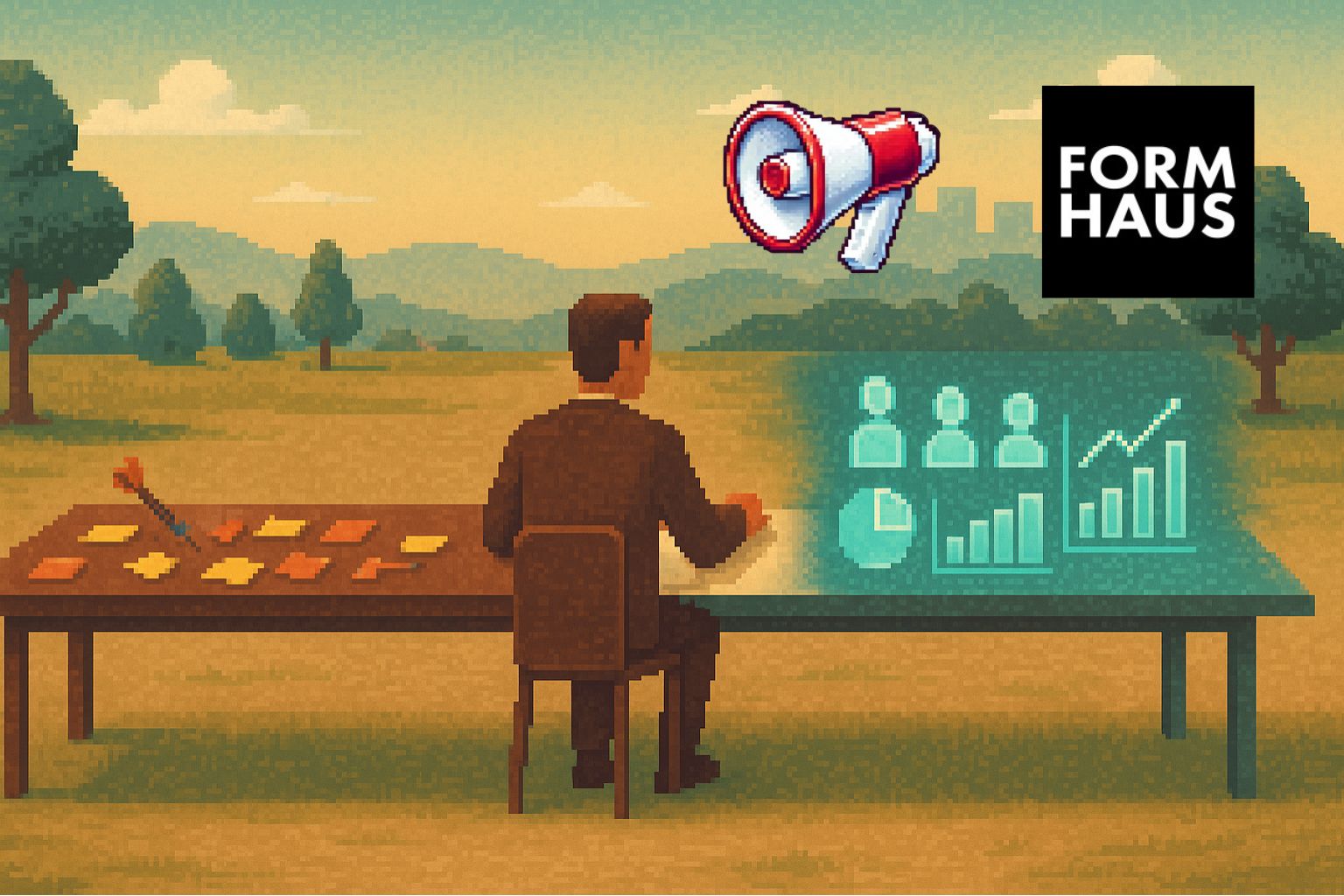Customer Story: Enabling Faster Pre-Launch Consumer Intelligence In Collaboration With FormHaus
The insights aren't just faster - they often uncover strategic blind spots that traditional research misses entirely. We discovered counterintuitive findings that would have caused expensive missteps if we'd relied on assumptions or industry best practices. - Zak Zaidman
FormHaus, a strategic innovation agency, leveraged AskRally's synthetic testing to provide their client with actionable consumer intelligence before major product launch decisions, transforming assumptions into data-driven strategy.
- 40% increase in addressable market through optimized pricing strategy
- 60% improvement in media spend allocation accuracy
- 5 distinct consumer segments identified where client assumed one unified market
The Problem
In the strategic consulting industry, most major decisions are still driven by intuition, founder hunches, and competitive analysis rather than authentic consumer data. Teams typically launch products first, then wait to see what the market tells them through sales performance and post-launch feedback. By that point, companies have already committed to packaging, pricing, and positioning—all the costly elements that are expensive to change.
FormHaus had a client preparing to make major strategic bets based on assumptions about their target market. Traditional research methods would take months to deliver insights, often arriving too late to influence critical pre-launch decisions.
We had a client who was about to make some major strategic bets based on assumptions about their target market, and we realized this was exactly the kind of situation where getting real consumer intelligence upfront - before launch - could be transformative. - Zak Zaidman
The Solution
FormHaus implemented AskRally's synthetic testing to gather authentic consumer voices and psychology before their client made irreversible strategic decisions. Rather than waiting for post-launch market feedback, they could access real consumer intelligence when it could still meaningfully impact strategy.
AskRally's synthetic testing provided granular psychological insights about why different consumer segments made decisions, not just what they preferred. This went beyond traditional research that might reveal "Segment A likes Feature X" to uncover the underlying emotional drivers and skepticism triggers that actually drive purchase behavior.
About midway through our first week, we uncovered audience segmentation patterns that completely shifted the client's marketing approach. What they assumed was a unified target market was actually five distinct consumer types with fundamentally different motivations and trust signals. - Zak Zaidman
The research revealed that the client's planned messaging strategy would have resonated strongly with only one consumer segment while alienating the others. More critically, FormHaus discovered that the same product benefits meant completely different things to different audiences based on their life stage and values.
The Results
The synthetic testing delivered transformative strategic insights that directly prevented costly missteps while opening new market opportunities. The client's original pricing strategy would have positioned them in a range that triggered quality skepticism among their most valuable consumer segments. The research revealed an optimal pricing band that balanced accessibility with credibility signals—potentially increasing their addressable market by 40% while maintaining premium perception.
FormHaus also discovered that their client's planned media spend allocation would have missed 60% of their actual buyers. By mapping discovery versus purchase channel preferences by segment, they could redirect budget to where different consumer types actually engaged with brands.
We immediately pivoted to developing audience-specific creative strategies and testing messaging frameworks. Instead of waiting months to understand our audiences, we were building personalized content approaches and identifying which channels each segment actually uses for discovery versus purchase. - Zak Zaidman
The client transformed from having generic messaging to developing five distinct conversation strategies, each tailored to specific consumer psychology. This wasn't just faster research—it was revealing strategic blind spots that conventional methods often miss entirely.
The breakthrough was having access to authentic consumer voices and psychology before making irreversible decisions, rather than learning after the fact when it's too late to pivot. - Zak Zaidman
FormHaus now uses synthetic testing to transform research from a 'validation' exercise into actual strategic advantage, delivering actionable intelligence when clients can still act on it—before committing to packaging, positioning, and media spend.

